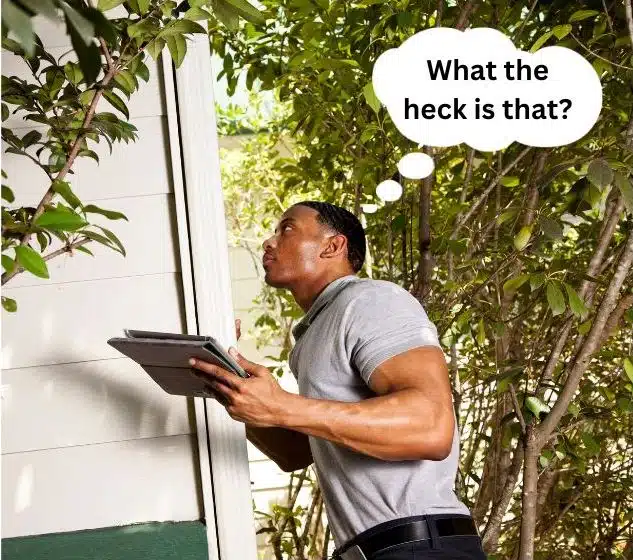If you’ve spent more than five minutes researching homes on the internet, you’re likely aware of real estate websites like Redfin and Zillow that provide free online home value estimates. The fancy term for one of these estimates is “automated valuation model,” or AVM for short.
They’re also known as home value estimators.
You probably lie awake at night contemplating the accuracy of AVMs and whether you can rely on them as realistic home value estimates. Realtors® must regularly discuss the reliability of AVMs with clients, who are sometimes disappointed when their home values are lower than they thought.
So you can get some sleep, we break down the pros and cons of free online valuation tools and how they stack up against comparative market analyses (CMA) and professional appraisals.
Check Your Home Value Now
Get three home value estimates in one place on Property Wonk. Our home value estimator uses information from multiple sources to provide a range of values.
It’s nice to get a ballpark estimate of your home’s value, but it’s important to know the limitations of online value estimators and when to use them.
AVM vs. Comparative Market Analysis vs. Appraisal
The three most common valuation sources are AVMs, comparative market analyses (CMA), and appraisals. What’s the difference you ask? Read on my friend.
Automated Valuation Model (AVM)
An AVM is a computer algorithm that generates a home value estimate by comparing the home’s characteristics to those of other homes that have recently sold.
An AVM pulls publicly available property data like sale price, sale date, type, size, age, and the proximity of the sales comps. The algorithm crunches all those variables to provide an immediate value estimate.
If you’ve tried different online valuation estimates, you’ve likely noticed that different values are often generated for the same property. Although the various models generally access the same data, they use different proprietary models to estimate values. As a result, the values will almost never be the same. If they are the same, they’re probably from the same underlying model.
Comparative Market Analysis (CMA)
A comparative market analysis (CMA) is also known as a broker price opinion (BPO). The terms are interchangeable but BPOs are usually requested by banks to determine values when their loans are undergoing short sales or foreclosures.
CMA’s are usually performed by real estate agents for buyers and sellers. The agent will compare the subject home to recent sales of similar homes, and make price adjustments based on location, home size, lot size, and characteristics.
Ideally, a walk-through of a home is done to closely evaluate the home’s condition and amenities, but that depends on the homeowner and the purpose of the CMA.
It’s important to note that Realtors® with access to real-time MLS data and hyper-local knowledge can often provide a more accurate home value estimate than appraisers. After all, a Realtor’s job is to sell the home for the highest possible price, which usually sets the fair market value.
After a home is already under contract, an appraiser is typically working to confirm the given sales price. That’s not the same as estimating the value a home would sell for on the open market.
For all the reasons above, a human’s CMA is more accurate than a computer’s AVM.
Appraisal
A home appraisal is performed by a licensed appraiser, who generates a detailed, written report. The appraiser also determines value by comparing recent sales of similar homes to the subject property. Price adjustments are made in a grid-type format based on differences in property size, location, condition, and amenities.
An in-person, visual inspection is almost always done since appraisals are typically requested by a lender. Photos of the subject property and comps are usually included, along with information about the neighborhood and general area.
Under certain circumstances, a lender may accept a desktop appraisal, which is similar to a full appraisal except the appraiser is not required to inspect the home. An appraiser will use the same information but rely on MLS photos of the properties in the report. Desktop appraisals are faster and less expensive than full-fledged appraisals but can miss factors affecting home value.
Note that there are other valuation approaches used by appraisers other than using comparable sales. However, those methods are usually reserved for income-producing properties.
Feast your eyes on the yummy table below for a side-by-side comparison of the 3 common home valuation methods.
AVM Pros and Cons
There are pros and cons when using an AVM to estimate a property’s value.
Pros
It’s fast and free. It only takes a minute to estimate the value of any property as long as there’s enough data. AVMs eliminate the need to get off the couch and drive to various properties for comparison. Just click your mouse for a ballpark estimate.
Although there are a number of free online valuation tools, you may be able to peg your home’s value by simply researching the actual sales yourself. In many neighborhoods, there are usually a couple of very good comparable sales that will nail down your home’s value. Just check the usual real estate websites, which can show sold homes in addition to current listings.
Cons
Incomplete, inaccurate, or sparse data will sink an AVM faster than the Titanic.
AVMs are only as good as the available data. The quality of the data often depends on the volume of home sales in a particular area and whether the county assessor maintains comprehensive data that are also made publicly available.
Moreover, AVMs do not account for variations in some key characteristics across multiple properties. AVM accuracy is limited by differences in the following parameters:
- Overall condition, needed repairs, and safety hazards.
- Recent upgrades like new kitchen cabinets and counters.
- Location. Are the comps or subject property on busy streets?
- Structures not showing on public records (pools, garages, sheds, stables).
- School district quality.
- Views of a lake, ocean, mountains, etc.
Where Do I Find Free AVMs?
An online search will turn up a lengthy list of free AVMs, sometimes called home value estimators. You can try several estimators or simply use Property Wonk’s three home value estimates.
Three different estimates provide a range of value and therefore a better sense of a home’s possible value depending on its condition and unique characteristics.
A Top Realtor Can Nail Down Your Home’s Value
After receiving Property Wonk’s three home value estimates, we can connect you with a great Bakersfield Realtor® to provide a comparative market analysis (CMA) for your home. Realtors® are residential real estate experts with access to the MLS and a firm grasp of the nuances of local market trends.
The Finish Line
Automated valuation models are a good first step toward narrowing down your home’s value.
AVMs are fast and free but have some limitations since they can’t fully account for property differences.
When you’re thinking about selling your home, always speak with a Bakersfield Realtor®. There’s no obligation and Realtors® are always willing to help. At least our referrals will be!
Check out our awesome home seller checklist.


